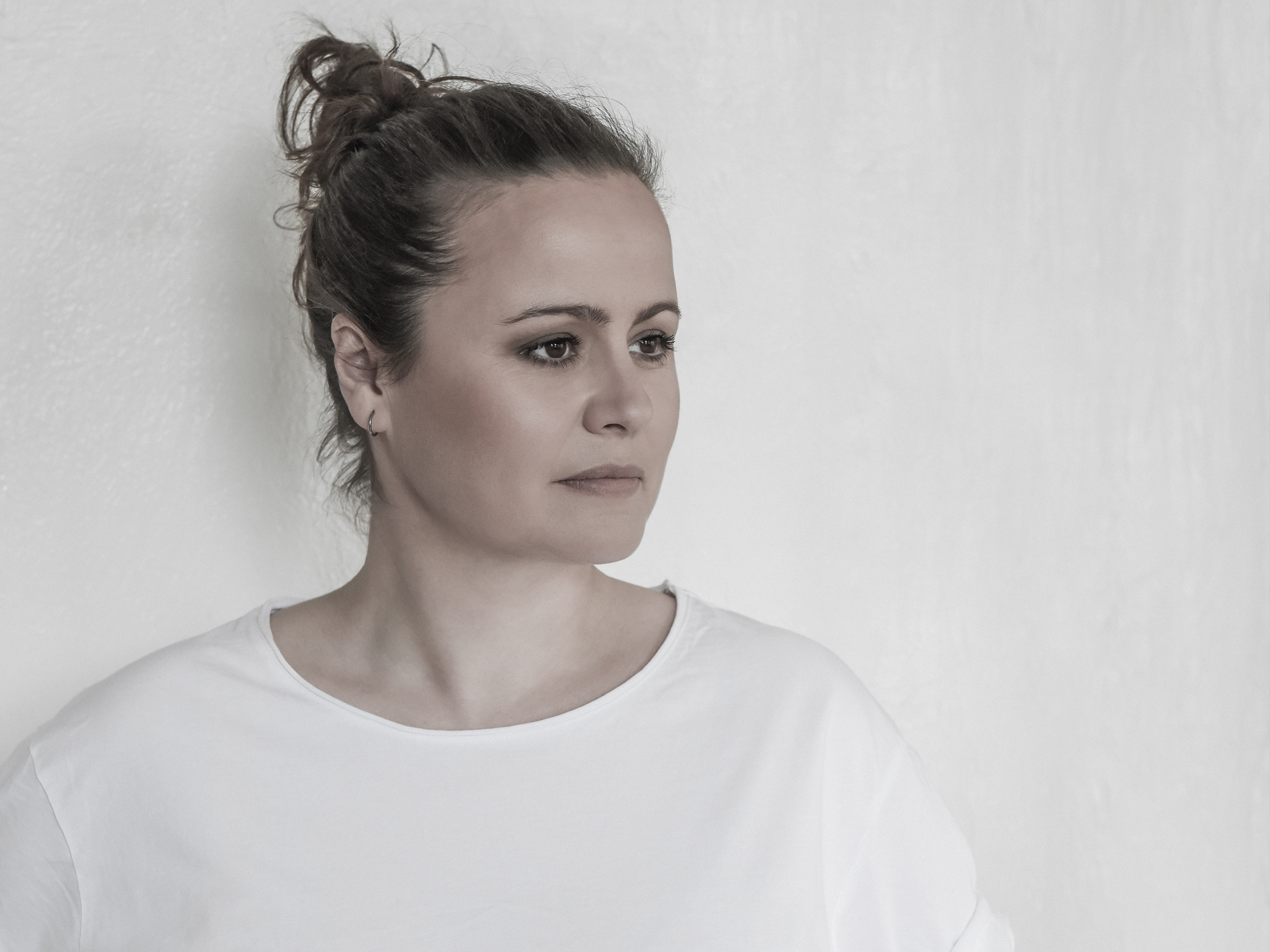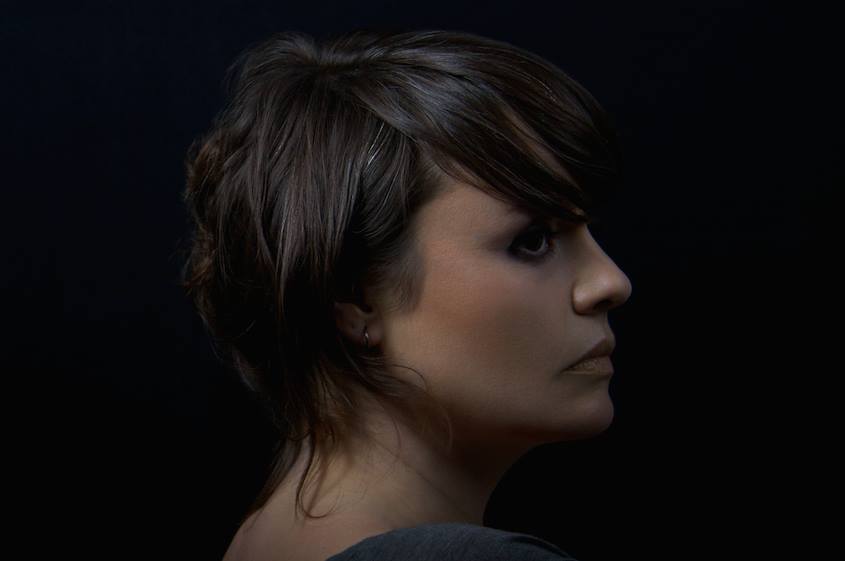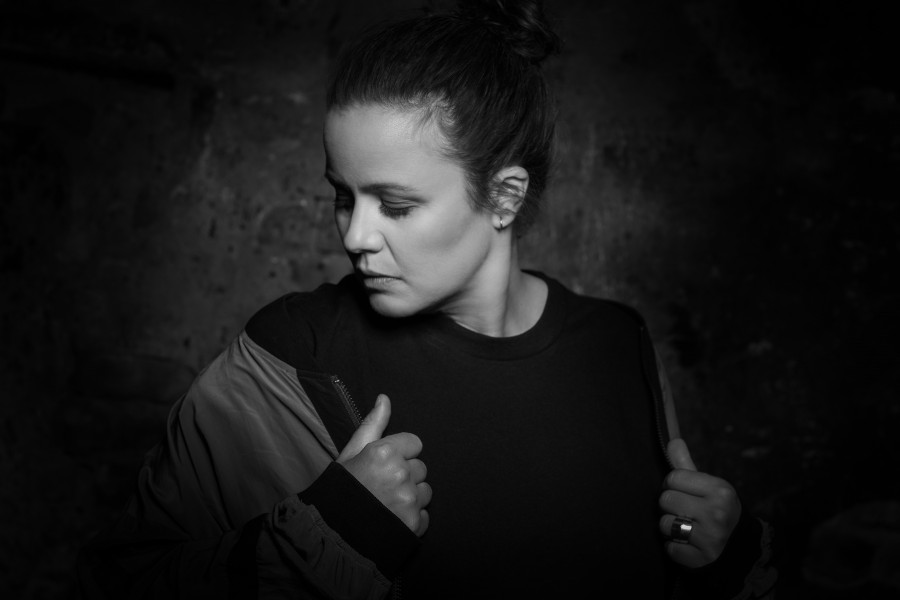Ask The Experts: Steffi
The Dutch-born DJ-producer answers your questions.

It’s not necessary to divulge too much in this introduction, for regular readers of XLR8R will likely be familiar with Steffi’s work. She has, after all, appeared on the site several times over recent years, with a contribution to our podcast series and two in-depth interviews—one focused on the launch of live set; the other alongside Dexter discussing the relaunch of their Klakson label. So we’ll keep this brief profile as short as possible; if you wish to know more, check our feature here.
Having spent a decade spinning in Amsterdam, Steffi moved to Berlin in 2007 to begin a residency at Panorama Bar. She’s since earned a reputation as a real DJ’s DJ—acclaimed for both her technical proficiencies and ability to deliver the right record at the right time. And her affiliations with the Berlin club do not end there: the majority of her productions, including three solo LPs—namely 2011’s Yours & Mine and 2014’s Power Of Anonymity—have landed on its in-house record label, Ostgut Ton. She’s just recently returned to the imprint with a third LP, World Of The Waking State, which was “created in a period when she found herself free of the past and settled more comfortably in her own skin,” resulting in a record that’s more experimental than previous efforts.
Elsewhere, Steffi has co-produced another LP with Virginia, with Analogue Cops as Third Side, and she collaborated as Doms & Deykers on Martyn’s 3024 label. She also continues to serve up quality electro and techno via two labels: Klakson and Dolly, which has two sub-labels. All releases, as Steffi explained, are rolled out with little or no promotion, leaving the listeners to determine what is good and what isn’t. Earlier this year, she also mixed the 94th fabric mix, calling on some close friends and collaborators to produce tracks “with a certain mindset,” which she then weaved together and subsequently released via Dolly Deluxe. Now she answers a small selection of the questions that you sent in.
Do you have any advice for when it comes to approaching labels with demos?
Yes, always send four or more tracks so the label has a feel of what your vibe is about and don’t send them to 10 labels at the same time. On SoundCloud, it’s really visible how many plays a track had and sometimes you get demos with 450 plays.
What would you recommend for a first analog synth?
That is always a very personal question. It depends on quite a few things, like what type of analog synth are you after, monophonic or polyphonic. Are you looking for a new synth or a vintage synth? How much money would you like to spend?
Every brand has a specific kind of sound, of course, so it’s also a matter of taste, in the end. Some synths are really hands-on and some need a programmer. I always prefer easy access to start with so you can enjoy turning knobs instead of having to navigate through a lot of menus before getting proper sound out of your synth. See if you can play on quite a few before you buy something to see if you like the sound and the “feel” of the synth. There are a few studios in Berlin that you can rent by the hour, for example, that have quite some old and new analog gear. It’s the perfect way to explore before you buy.
What gear do you use for your live set and how does it all interact?
For my solo live set, I use a very compact setup: a MacBook Pro with Ableton, an Akai controller, Roland TR-8, and sometimes a Roland 303 or a Moog Minitaur. When I played live with Dexter and Virginia we had a lot more on stage like a vocoder, Roland Spd-Sx drum pads, Roland JX-03, Yamaha DX200, Waldorf Pulse 2, Strymon delay, and reverb.
A lot of your tracks have really beautiful, ethereal pads—what synth do you use for this? Or what synth do you think is the best for this type of sound?
I have a lot of different synths so it varies a lot which one I use. I tend to switch a lot for each track. Here are some of the synths I have been using over the years for those sounds: Memory Moog, Korg Polysix, Sequential Circuits Prophet 5, Roland Jupiter 6, RolandD50, Oberheim Matrix 1000, Waldorf Micro Wave, Modor NF-1, and Yamaha DX200.

Does equipment—or gear—really matter? It’s an interesting topic. What are your thoughts?
Absolutely not! I personally prefer to use hardware because it’s very hands-on and I get a quick result but I have been working with producers who only use software and that also worked fine. Some producers who only work with a computer might have tricked you into thinking they work fully analog even and it turns out to be they use Reason for example. It’s all about the creative idea at the end of the day, not what kind of gear you use.
How much time do you spend preparing for a set — and what influences the contents of your record bag?
Four to five hours, most of the time; but sometimes I can be in my record room for a day or two if I am looking for a new flow or new ideas. My mood has a lot of influence on the way I pack my record bag. I could be focussed on one single record I love to play and build a whole set around that to make it happen. That’s the fun of DJing.
“When I first started to collect records, I spent hours and hours every day just mixing and mixing and mixing, getting to know your records, finding a flow, learning technique etc.”
What do you think separates a person who can beat match and has a nice record collection from a great DJ? What’s the missing link?
Flow and vibe.
How did you learn to make a set flow nicely? Is it just experience?
Years of practice before even playing for a crowd, really. When I first started to collect records, I spent hours and hours every day just mixing and mixing and mixing, getting to know your records, finding a flow, learning technique etc.
How do you organize your digital files before a gig? For vinyl, do you place your records in a certain order in your bag?
Vinyl gets an order in the bag, records that go together very well and an overall build up and genre sections as far as possible. The rest of the music that comes from a USB stick is labeled under genres and an extra folder with playlists for every single gig.
Do you put records aside knowing that you’re going to play them later in the night?
Yes.

What’s the best piece of advice anyone has given to you in terms of DJing and/or production?
Concentrate on the essential stuff: music. Listen to your inner voice; stay true to yourself and what you believe in rather than making short-term opportunistic choices to gain fame or fortune.
Do you feel pressure to play a certain type of music at events/clubs etc or do you more or less have the freedom to create a set you think will fit the night?
I don’t take on any gigs that make me “have” to play a certain type of music or exclude me to play my favorite music.
There’s a lot of talk about the revival of electro music in dance music today. What are your feelings about this — and was this behind your decision to restart Klakson?
Electro is where electronic music started for me in the mid-’80s and it will always be the love of my life. Because of my move to Berlin in 2007, I did not feel the need to release much on Klakson and in 2010, I decided to start a new label called Dolly, and over the years it gave birth to sub-labels to create a wider platform. Somehow Klakson never died and I always had it in the back of my mind to start releasing again if I had the right material.
How active are you in the A&R of your labels? Do you find the music or does the music come to you?
I am very active in finding new people and connecting with artists. I don’t take on many demos but I do check everything that gets sent. It’s a lot of work but I like to know what people are doing and to stay updated. It’s a balance between reaching out to the right people and the right people finding you.
What is a Klakson track?
Anything that kicks my ass!
If you were starting a label in today’s electronic music climate, how would you go about it?
Make sure you have high-quality music that the world needs to know about.
Can you explain what your creative process is? Do you try to have creative sessions every day, do you have any specific routines, workflows or habits that help you to be more creative?
I, most of the time work, in phases. I’ll take time out from traveling and playing DJ gigs to lock myself in the studio. I go early morning and do a jam until I feel I have something substantial and multi-track this into the computer so I have around a seven-minute jam of every single track + FX’s and tweaks to edit later in life. After lunchtime. I go in again and do another fresh jam and record. After a while, I’ll open all my recordings from those weeks and start to select the best sessions and edit and arrange them more in depth.
How have your processes changed over time?
A lot. since I work with a hardware sequencer and my studio is one hundred percent connected through patch bays, my whole world turned 360 degrees. It’s a different way of writing and these days I don’t sit with a loop for days but like to use a fresh canvas every day to keep the workflow fast.
Is there one piece of gear that sits at the center of your productions?
Sequentix Cirklon.

